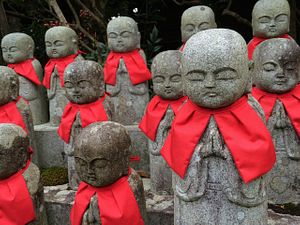On Friday, Japan’s Health Ministry announced plans to tap an additional 2,000 child welfare officers to prevent cases of child abuse and child neglect from going undetected. The Health Ministry is scrambling to implement emergency countermeasures after the tragic case of a 5-year-old girl who died after continuous physical and psychological abuse from her parents.
The harrowing case took place in Tokyo’s inner city ward of Meguro. Five-year-old Yua Funato, despite already being under the supervision of child services, died from complications of pneumonia brought on by starvation and malnourishment. The case exposed administrative and communication blunders from welfare officers in western and eastern Japan, who failed to effectively monitor the child’s physical wellbeing. Despite concerning reports from neighbors in the family’s previous home of Kagawa, west Japan, welfare officers failed to physically meet and assess Yua’s wellbeing in Tokyo three weeks before her death, after her parents refused staff entry into their apartment. With the family new to the city, staff aimed to foster a harmonious relationship with the parents — even while they, unbeknownst to welfare officers, kept Yua in a malnourished state, feeding her only soup, while also kicking and beating her.
Under police interrogation, Yua’s 26-year-old mother stated she didn’t take Yua to hospital in her final hours for fear of being found out by authorities.
While the girl had been taken under protective custody twice in a different area of Japan and her case was referred to police, her stepfather was not indicted after promising to review his actions. Though Yua was released back to her parents on a supervisory basis, within two months her parents moved to Tokyo, where local child welfare workers failed to recognize the warning signs or escalate her case with law enforcement preventing lifesaving care.
Yua’s high-profile case sent shockwaves throughout Japan, drawing attention to the lack of public spending even as child abuse reports have doubled within the past five years, reaching a record 122,578 cases in 2017. Prime Minister Shinzo Abe described the incident as “soul crushing” and a national shame. He vowed to eradicate child abuse and to protect children’s lives by relieving the strain on under-resourced child welfare services.
In particular, inadequate worker training in the department of child services has come under the spotlight. Many staff members have no background in social welfare and lack the skills to properly assess high-risk situations or tackle conflict. This means that upholding minors’ rights under child welfare law is relegated to the hands of untrained and inexperienced child welfare officers. Further, public servants in the department rotate every few years, leaving gaping opportunities for cases to fall through the cracks.
Child Services pledged to re-examine current protocol in order to provide staff with the skills to better judge high-risk scenarios and take emergency intervention measures without hesitation.
Under the new child abuse prevention measures, when a child’s safety can’t be verified within 48 hours, new rules will allow child services and police to coordinate and share information in order to confirm a child’s safety. Moreover, child services will beef up the health and wellbeing monitoring of all preschool-aged children by September by making information on preschool-aged children who miss health checks or fail to attend kindergarten available across local and regional authorities.
Yua’s death has also drawn attention to forms of child discipline that are now being labelled as psychological abuse and a leading cause of death. In court, the victim’s stepfather — who has been held in custody since March, when Yua died — called the routine physical and psychological abuse “harmless” discipline for his “spoiled” stepdaughter.

































